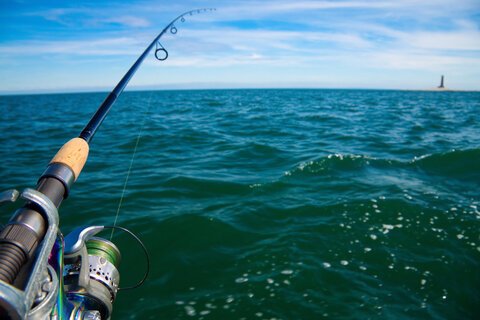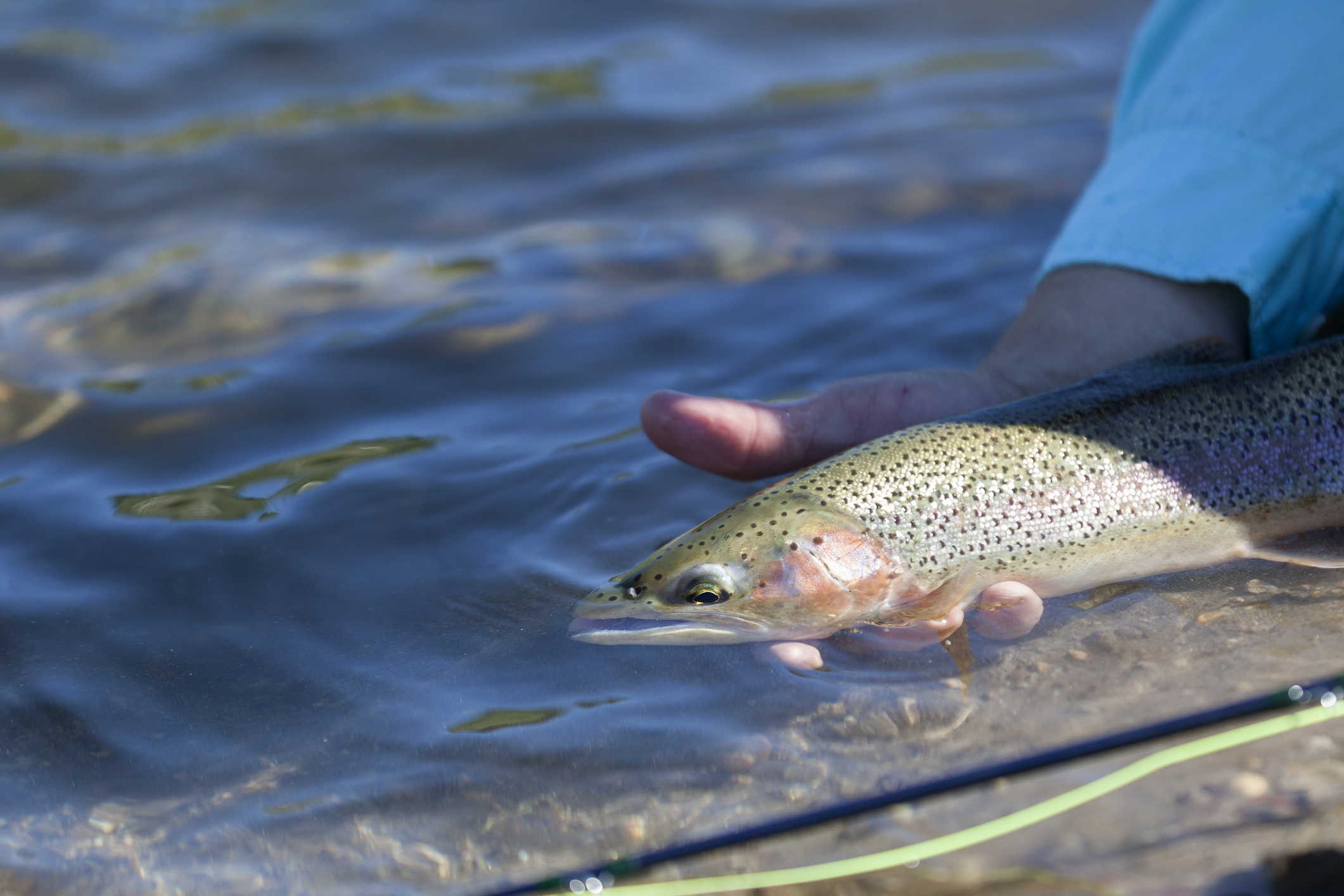If you're an aspiring angler, you've probably wondered, 'Does talking scare fish?' and 'Do you have to be quiet when fishing?' We'll be the first to admit this is a valid concern – especially if you're looking to reel in that trophy catch!
Long story short: spooking your catch can easily disturb a fishing trip's calming, relaxing nature. So, let's explore the science behind underwater sound and how it'll impact your fishing experience.
Can Fish Hear You? The Science of Underwater Sound
Anglers all over the world have been debating if fish can hear you or not. But what does science say? Researchers have confirmed that fish have highly developed auditory systems (often more sensitive than ours). That means they perceive sound through their inner ears and, for some species, through their lateral line – a sensory organ that detects vibrations in the water.
Now, how does sound travel underwater? Because of water's density, it conducts sound waves faster and more efficiently than the air. That means that sounds produced above the surface of the water — like human chit-chatting — can travel into the water. Of course, the degree to which fish perceive these sounds depends on various factors.
Do You Have to Be Quiet When Fishing? Understanding Underwater Noise
While it's true that fish can hear sounds, they can't necessarily hear the specifics of your conversation. A casual conversation won't send fish fleeing in terror, but a loud or sudden noise will spook them.
Let's talk about why:
Vibrations
Talking produces vibrations that travel through the air and can enter the water. Loud talking or shouting creates stronger vibrations, which fish can detect. These can also be transmitted through the hull of a boat – or the ground if you're shore fishing. Even subtle vibrations (like tapping your foot or shuffling gear) can be amplified underwater.
Water Surface
The water's surface acts as a sound conductor. Sounds from above — including laughter, music, and voices — can penetrate the water column. This is especially true in calm conditions, where the surface acts like a mirror – reflecting and transmitting sound waves.
In choppy water, the surface is more disrupted, and sound waves are scattered – reducing the clarity of sound levels.
Fish Species
Like humans, some fish species are more sensitive to sound than others. Predators like bass or trout, for example, are often more cautious and easily startled. Bottom-dwelling fish — like catfish — may be less sensitive to airborne sounds but highly sensitive to vibrations transmitted through the substrate. Additionally, fish that school together may subconsciously react as a group to sudden noises (it's a survival mechanism).
Water Conditions
As you can imagine, clear, still water transmits sound more effectively than murky or turbulent water. Sound waves travel further and with less distortion in clear water – making fish more likely to detect them. Murky water, on the other hand, absorbs and scatters sound waves – reducing their range and clarity. Water temperature and salinity can also affect sound transmission.
So, do you have to be quiet while fishing? It's not about complete silence but rather about minimizing disruptive noises. A calm tone is less likely to disturb fish than yelling, loud laughter, or music.
How to Get More Catches: Tips for Sound-Conscious Anglers
Now that we've covered how sound affects fish, here are some practical tips to get more bites:
- Use Your Indoor Voice: Keep your conversations at a moderate volume and avoid yelling or sudden outbursts.
- Minimize Boat Noise: Engine noise, slamming hatches, and clanging tackle can all spook fish. Use trolling motors whenever possible and handle equipment gently.
- Be Mindful of Footsteps: On shore or on a boat deck, heavy footsteps create vibrations that fish can detect. Try to move quietly and deliberately instead.
- Consider Water Conditions: Be extra cautious about noise in clear, calm water. In choppy water movements or windy conditions, fish are less likely to be disturbed by sound.
- Use Sound to Your Advantage: Some anglers use lures that create specific vibrations to attract fish. Of course, you must first understand the difference between attracting and scaring.
- Approach Quietly: When approaching a fishing spot, do so slowly and quietly. Again, trolling motors will be your best friend. Also, avoid sudden movements that could create loud splashes or vibrations.
- Understand Fish Behavior: Different fish react differently to sound. Therefore, researching the species you're targeting is always a good idea to understand their sensitivity.
- Fish Deeper: Sound dissipates as it travels through water, so fishing in deeper water can offer a buffer against surface noise.
- Use Quality Equipment: Generally, well-maintained equipment creates less noise than old or worn-out gear.
The Bottom Line (Pun Intended)
While you don't need to whisper while fishing, being mindful of sound is essential. Loud, sudden noises scare fish and reduce your chances of a successful catch. So, save the tunes for your leisurely cruises, use a trolling motor, and use your indoor voice. Happy fishing!


